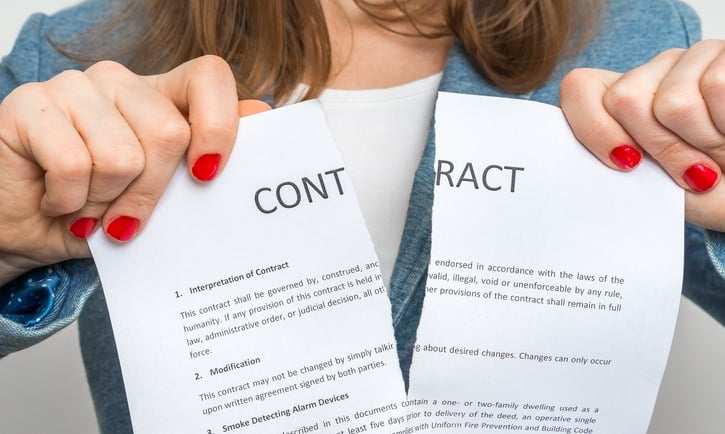What Happens When You Cancel Your Insurance Early?
Cancelling your insurance early can have consequences. Learn what happens when you cancel your policy and how it can affect your coverage, refunds, and future premiums.
10/3/20253 min read


Cancelling your insurance policy early might seem like a way to save money or reduce unnecessary costs, but it’s important to understand the potential consequences. Whether it’s health, auto, home, or life insurance, early cancellation can have financial and practical impacts. In this blog, we’ll explain what happens when you cancel your insurance early and how it can affect you.
1. Potential Loss of Coverage
The most immediate consequence of cancelling your insurance early is the loss of coverage. Once your policy is canceled, you are no longer protected under that insurance. This means that if an accident, illness, or damage occurs after cancellation, you will be responsible for covering all costs out of pocket.
For example:
If you cancel your car insurance early and get into an accident, you could face expensive repair bills and potential legal consequences for driving without insurance.
If you cancel your health insurance early, you may be left without coverage for medical treatments, making you vulnerable to high medical expenses.
2. Refunds and Policy Adjustments
Depending on your insurance provider and the terms of your policy, you may be entitled to a refund if you cancel early. However, refunds are typically prorated, meaning you’ll only receive a refund for the unused portion of your policy. Keep in mind that:
Auto insurance: If you cancel before the policy renewal date, you may receive a refund for the remaining months, but cancellation fees may apply.
Health insurance: Some health insurance policies may have limited refunds or none at all, especially if you're on a year-long contract.
Life insurance: Cancelling a life insurance policy often doesn’t result in a refund, but you might receive a "cash surrender value" if it's a permanent policy like whole life insurance.
3. Cancellation Fees and Penalties
Some insurance companies charge cancellation fees when you terminate your policy before the term ends. These fees can range from small administrative charges to a percentage of your remaining premium. This can make canceling early more expensive than expected.
For example, if you cancel your auto insurance policy within the first few months of a 12-month contract, the insurance company may charge a fee that could eat into the refund you’d receive. It's crucial to read the terms of your policy to understand any cancellation penalties.
4. Impact on Future Premiums
One of the most significant long-term consequences of canceling your insurance early is how it can affect your premiums on future policies. Here’s why:
Auto insurance: If you cancel your car insurance and go without coverage for an extended period, future insurers may view you as a higher risk, which can result in higher premiums when you reapply.
Health insurance: A break in coverage, especially under the Affordable Care Act, can result in higher rates when you reapply due to the lack of continuous coverage.
Life insurance: If you cancel your life insurance, you may not be able to get coverage again at the same rate, especially as you age or if your health declines.
In addition, some states have laws that require continuous coverage for specific types of insurance, so canceling early could leave you non-compliant.
5. Reinstating Coverage Can Be Complicated
If you cancel your insurance early and later decide to reinstate your coverage, it might not be as simple as calling your insurance provider. In many cases, reinstating a canceled policy is not an option, and you may need to apply for a new policy entirely. Depending on the type of insurance, you may:
Face higher premiums due to changes in your risk profile.
Have to undergo additional medical or underwriting assessments (especially in health or life insurance).
Encounter a waiting period before your coverage begins again.
6. Potential Gaps in Coverage
Another downside to canceling insurance early is the potential for a coverage gap. This can be especially risky for auto or health insurance. If there’s a gap between your old and new coverage, you might have to pay out of pocket for any incidents that occur during that time.
To avoid a coverage gap, make sure you have your new policy in place before canceling your old one.
7. How to Cancel Insurance Responsibly
If you decide to cancel your insurance early, follow these steps to minimize negative consequences:
Review your policy: Understand the terms, including cancellation fees, refunds, and potential penalties.
Check for a replacement: Ensure that you have a new insurance policy in place before canceling the old one to avoid a coverage gap.
Contact your provider: Call your insurance company and ask about the cancellation process. Get written confirmation of your cancellation.
Get a refund: If eligible, ensure you receive a prorated refund for any unused portion of your premium.
Conclusion:
While canceling your insurance policy early might seem like an easy way to save money, it comes with potential financial and practical consequences. You may lose coverage, face cancellation fees, and experience higher premiums in the future. It's essential to carefully consider your options before making the decision to cancel early and ensure that you’re still financially protected.
If you’re thinking about changing your insurance provider or need help finding the right coverage, visit Tiki Wealth to explore your options and find the best policies for your needs. Don’t risk your financial security—get insured today!
Insurance
© 2025 TiKi Wealth. All rights reserved. In partnership with Experior Financial Group Inc. Privacy Policy Terms of Service Disclaimer
Investment
Other
Subscribe to Our Newsletter
Stay updated with the latest financial news and tips.


